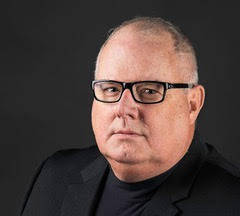Psychiatric hospital better option than jail
“We’re all crazy. Most of us haven’t been caught yet.”
In the early to mid-19th century, the mentally ill were jailed, usually under deplorable conditions.
When the wretched conditions and lack of treatment came to light via the research of activist Dorothea Dix and others, elected officials in several states were forced to take action. The subsequent endeavors resulted in better care and treatment for an ignored underclass.
By 1880, there were at least 75 public psychiatric hospitals in the United States, serving a population of 50 million residents.
According to the 1880 census, most of the insane people were being treated in either hospitals, almshouses or at home. Only 397 of the 92,000 insane people were in jail (0.7 percent). A drastic improvement from earlier in the century.
With the proliferation of anti-psychotic drugs, professionals sought to deinstitutionalize mental patients beginning in the 1950s. Subsequently, psychiatric hospitals were closed and then shuttered.
The mentally ill were again shuffled between jails and homeless shelters.
In May, Las Vegas Review-Journal reporter Jessie Bekker reported that a quarter of all inmates at the Clark County Detention Center suffered some type of mental illness. With an average daily population of 3,800 inmates, over 900 needed psychiatric attention.
According to the National Alliance of Mental Illness, about a quarter of state prisoners suffer from some form of mental illness and more than a quarter of homeless citizens in shelters have a serious mental illness. Furthermore, over 10 million adults have at least one drug addiction coupled with a mental health disorder.
Over 2 million adults live with schizophrenia and over 6 million adults live with bipolar disorder; 16 million adults live with major depression and 42 million live with some sort of anxiety disorder.
The statistics might seem overwhelming, but most of those afflicted do not need institutionalization. However, the most severe cases should have a place to be treated and safeguarded instead of being incarcerated. Furthermore, the surge in homelessness is a symptom of untreated mental problems.
In my career I made several arrests of mentally ill people, usually after the emergency room released them because they weren’t a harm to themselves or others. There was no other place to take them where they would be safe. Arresting a recently discharged mental patient for jaywalking or littering is merely placing a bandage on a severed limb. Peace officers frequently take mental patients to jail because there are no available alternatives.
Thankfully, the living conditions and services provided in our jails and prisons are better than 200 years ago. However, we cannot arrest our way out of the mental health crisis.
In the U.S., serious mental illness cost over $190 billion in lost earnings. I am confident this figure does not include the cost of police, emergency and jail services in processing and treating the mentally ill.
Taxpayers should consider funding psychiatric care facilities or bear the expense of larger jails and prisons.
Dan Jennings is a 38-year law enforcement veteran. He can be reached at bcpd267@cox.net.





